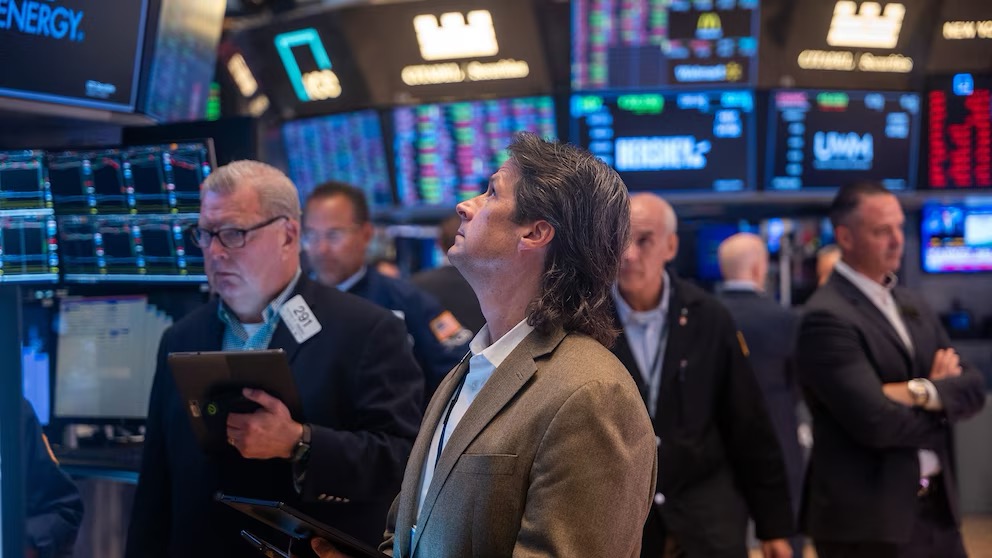US President Donald Trump’s tariffs have sparked wildfires across global stock markets, raising concerns about the potential for a recession.
It’s important to note that the stock market’s performance doesn’t always mirror the economy’s health. While falling share prices can indicate economic challenges, they don’t necessarily mean a recession.
However, significant stock market declines, such as those we’re witnessing now, often signify a fundamental reassessment of future profits for companies that make up the world’s stock markets.
Market participants generally anticipate that increased tariffs will lead to higher costs and reduced profits. While this doesn’t guarantee a recession, the chances are certainly higher than before Trump announced the most severe and extensive tariffs in a century.
An economy is considered in recession when the total of everything we and the government spend or export shrinks for two consecutive three-month periods.
Between October and December last year, the UK economy experienced a modest growth of 0.1%, but the latest monthly data revealed a decline of the same magnitude in January. The first estimate of the UK economy’s performance in February will be released this coming Friday.
Therefore, we’re still far from determining whether we’ve crossed the threshold into recession.
Amidst the turmoil of stock market falls, some particularly concerning casualties have emerged. Banks are often seen as proxies for economies, and one well-respected market watcher expressed their astonishment at the significant decline in banks.
HSBC and Standard Chartered, which operate at the crossroads of international trade between the East and West, both experienced declines of over 10% overnight before recovering some ground.
Other warning signs are not confined to stock markets but are evident on commodity exchanges. Copper and oil prices, often considered barometers of global economic health, have both fallen more than 15% since Trump’s tariff announcement.
It’s worth noting that there haven’t been many truly global recessions in recent history.
The 1930s, the aftermath of the Great Financial Crisis and the global pandemic, stand as three rare instances of synchronized downturns in major economies. While it remains an unlikely scenario for such a scale this time, economic analysts have significantly increased the chances of recession in the US, UK, and European Union.
On the positive side for UK Chancellor Rachel Reeves, the government’s borrowing costs are expected to decline by approximately £5 billion to £6 billion annually as investors seek the relative safety of government bonds. However, this positive development will be offset by potential hits to government tax receipts if the economy as a whole experiences a downturn.



















